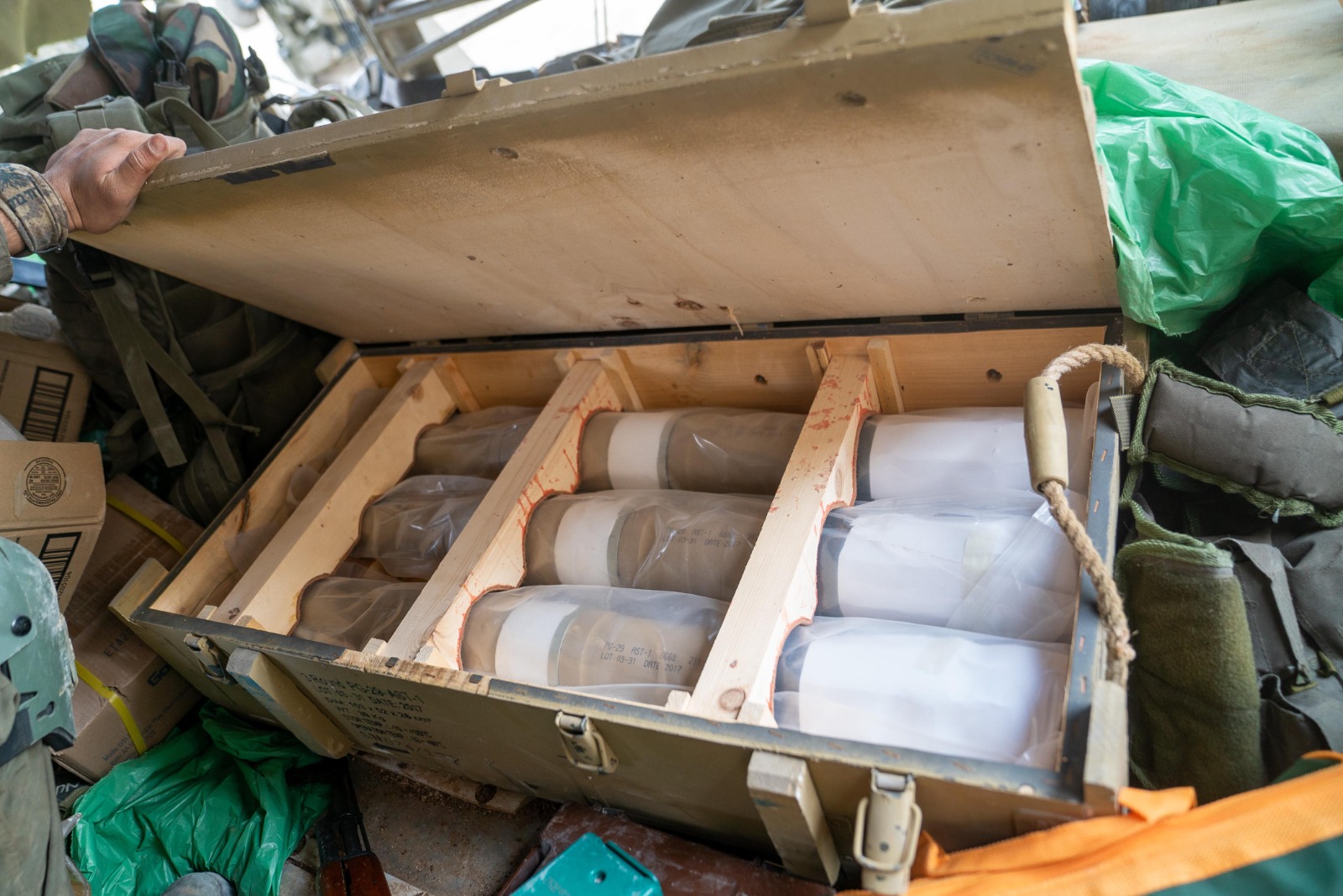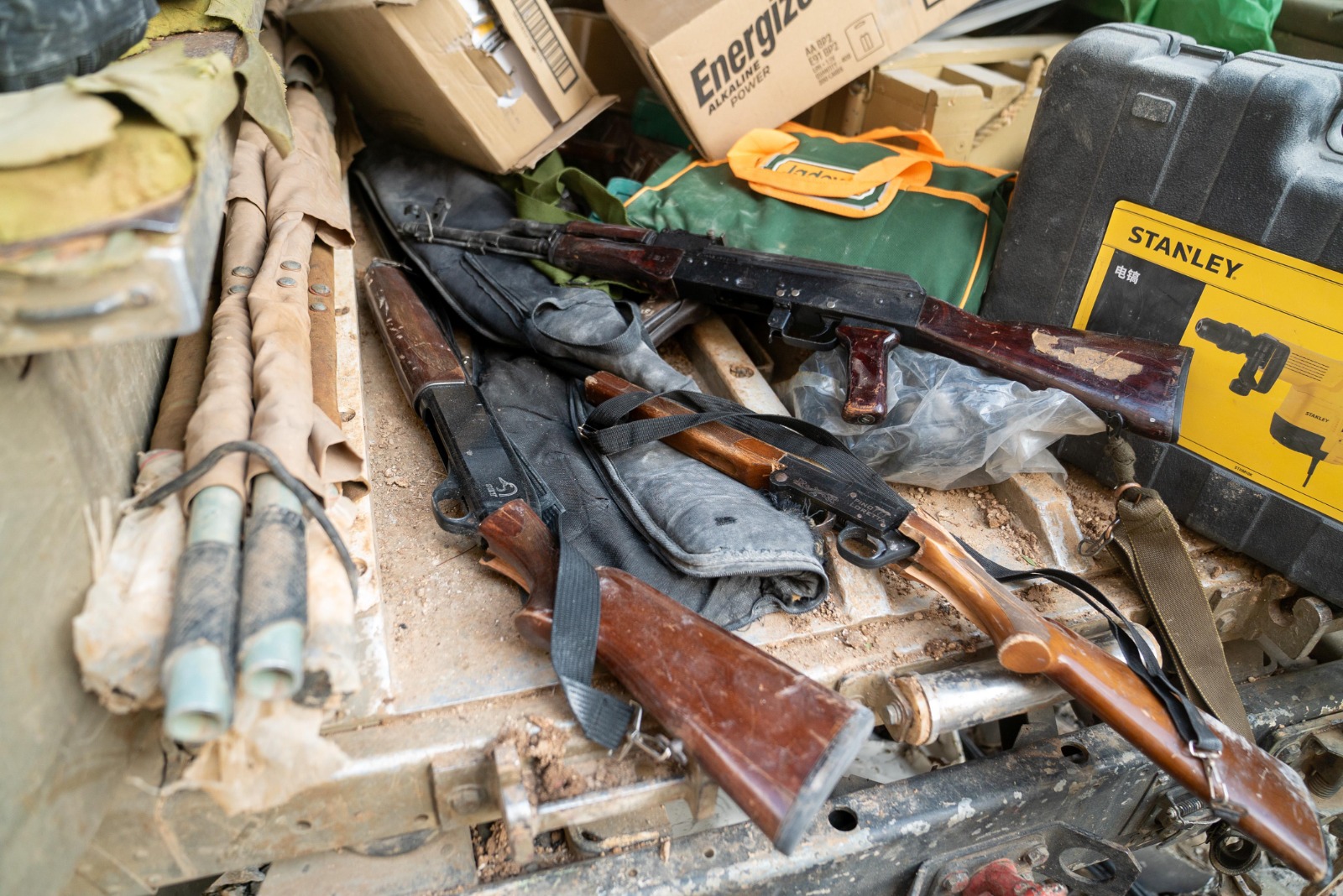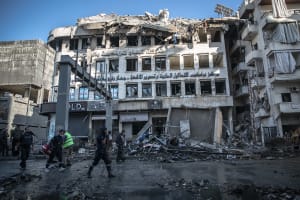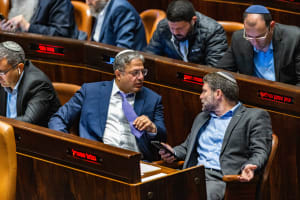IDF strikes several Hezbollah sites in Lebanon and Syria, citing ceasefire violations
Despite Israeli strikes, ceasefire appears to be holding

Israel Defense Forces on Saturday carried out several strikes against Hezbollah targets in Lebanon, accusing the terror group of violating the ceasefire agreement that went into effect on Wednesday.
In one instance, the IDF observed armed operatives loading a vehicle with RPGs, boxes of ammunition, and other military equipment. The Israel Air Force (IAF) struck the vehicle a short time later.
In a separate incident, terrorists were seen approaching known Hezbollah infrastructure in southern Lebanon, in violation of the ceasefire. The IAF struck the terrorists and IDF troops later discovered weapons in their possession, including grenades and firearms.
In another strike near Sidon, the IAF targeted rocket launchers at a Hezbollah facility after noting terrorist activity.
“These actions were taken to address immediate threats and to enforce the cease-fire,” the IDF stated.
Additionally, IAF fighter jets conducted an intelligence-based strike on a military vehicle operating near a recognized Hezbollah rocket manufacturing site.
The IDF has reported several violations of the ceasefire in the past few days.
On Friday afternoon, the IAF struck a mobile Hezbollah rocket launcher in southern Lebanon.
The IDF also reported discovering and confiscating weapons hidden in a mosque in southern Lebanon.

“The IDF is deployed in the southern Lebanon area, operating against any threat to the State of Israel and enforcing any violation of the ceasefire agreement understandings,” the IDF spokesman stated.

Despite the IDF strikes targeting several Hezbollah terrorists and infrastructure, the ceasefire appears to be holding, as there have been no Hezbollah rocket launches since the agreement came into effect last Wednesday morning.
As a result of the halt in rocket fire, the Home Front Command has changed its restrictions in northern communities, allowing larger gatherings and a return to school for some students.
Last Thursday, the IDF Home Front Command lifted all restrictions in the Haifa area, permitting schools to resume normal operations and allowing social gatherings to take place. Previously, most schools in the area had shifted to online classes due to the rocket threat.
According to a Washington Post report, Iran views the ceasefire in Lebanon as an opportunity to rebuild and resupply the Hezbollah terror group. While Iranian leaders have tried to portray the ceasefire as a victory for Hezbollah, many analysts believe the Islamic Republic pressured the group to agree to it, fearing that Israel would decimate this key proxy, central to Iran's Middle East strategy.
The ceasefire agreement does not restrict Israel from conducting strikes in Syria meant to disrupt resupply efforts to Hezbollah from Iran.
On Saturday, the IAF conducted an intelligence-based strike on military infrastructure sites next to border crossings between Syria and Lebanon that were actively being used by Hezbollah to smuggle weapons from Syria into Lebanon, in violation of the agreement.
The ceasefire prohibits the entry of weapons into Lebanon except under the supervision of the Lebanese Armed Forces.
“The Hezbollah terrorist organization backed by the Syrian regime, uses civilian infrastructure sites to conduct terrorist activities and smuggle weapons used against the residents of Israel,” the IDF spokesman said.
“The IDF will continue to act to remove any threat to the State of Israel that violates the understandings of the ceasefire agreement.”

The All Israel News Staff is a team of journalists in Israel.
You might also like to read this:














